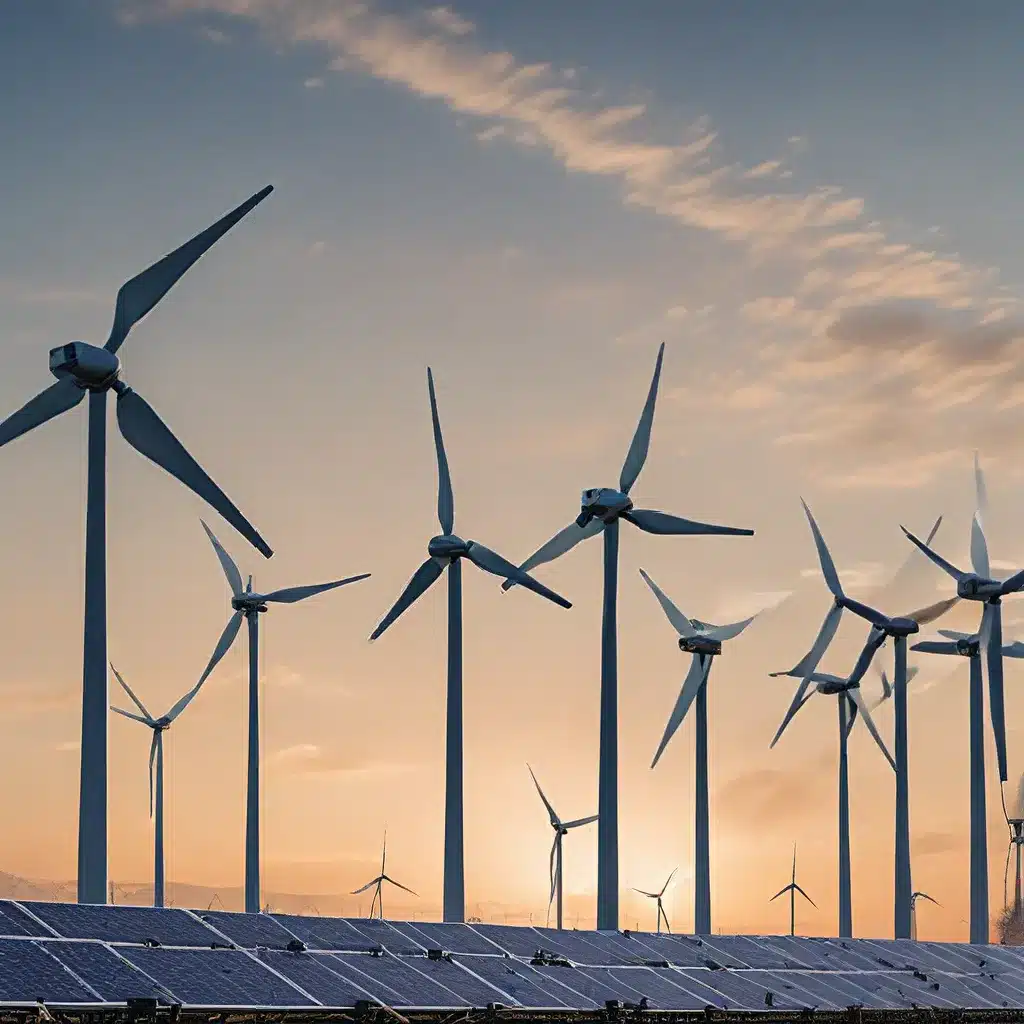
Revolutionizing the Energy Landscape with Blockchain
Picture this: you’re a homeowner with solar panels on your roof, generating more energy than you need. Wouldn’t it be great if you could sell that excess power directly to your neighbors, cutting out the middlemen and making a tidy profit? Well, with the help of blockchain technology, that dream is becoming a reality.
Blockchain has emerged as a game-changer in the energy sector, promising to transform the way we produce, consume, and trade renewable energy. By creating a secure, transparent, and decentralized platform for energy transactions, blockchain is paving the way for a more efficient, sustainable, and democratic energy future.
Let’s dive into the fascinating world of blockchain-powered energy trading and explore how this cutting-edge technology is shaking up the industry.
Overcoming the Challenges of Centralized Energy Systems
Traditionally, our energy systems have been heavily reliant on centralized, fossil fuel-powered grids. These systems suffer from a range of issues, including energy loss during long-distance transmissions, low fault tolerance, and limited responsiveness to fluctuations in supply and demand.
The rise of distributed energy resources (DERs), such as solar panels, wind turbines, and combined heat and power systems, offers a promising alternative. These local, small-scale energy generators can reduce energy loss, improve grid resilience, and better adapt to changing energy needs.
However, the integration of DERs into the existing energy infrastructure has its own set of challenges. Intermittent energy supply, multi-directional energy flows, and difficulties in setting fair, real-time prices are just a few of the hurdles that need to be overcome.
Enter Blockchain: A Secure, Transparent, and Decentralized Solution
This is where blockchain technology steps in, offering a transformative solution. Blockchain is a decentralized, digital ledger that records transactions in a secure, transparent, and tamper-evident manner. By leveraging the power of blockchain, we can create peer-to-peer (P2P) energy trading platforms that address the challenges faced by centralized energy systems and DERs.
Blockchain-based energy trading solutions provide several key advantages:
-
Secure and Transparent Data: By using a distributed, encrypted ledger, blockchain ensures the security and traceability of energy ownership and transactions, reducing the risk of fraud or data manipulation.
-
Real-Time Decision-Making: The transparency of blockchain-based platforms eliminates information asymmetry between energy producers and consumers, enabling them to make informed decisions in real-time.
-
Automated Transactions and Settlements: The integration of smart contracts into blockchain-based systems allows for the automation of energy transactions and price settlements, reducing administrative costs and streamlining the process.
-
Decentralized Coordination: Blockchain-enabled P2P energy trading platforms empower prosumers (producers and consumers) to actively manage their energy consumption and production, without the need for centralized intermediaries.
Blockchain in Action: Real-World Examples
The potential of blockchain in the energy sector is not just theoretical; it’s already being put into practice around the world.
In Thailand, the Chiang Mai University P2P system utilizes a blockchain platform developed by the Australian company Power Ledger, allowing the university’s buildings to trade solar energy generated by their rooftop panels.
Meanwhile, the Energy Web Foundation (EWF) has launched a blockchain-based renewable energy certificate (REC) trading platform with a Thai energy conglomerate, PTT. This innovative solution provides more robust traceability features to comply with the International REC Standard.
These examples demonstrate that the technological foundations for blockchain-powered energy trading are well-established, and the focus is now shifting to developing the necessary regulatory and market mechanisms to support widespread adoption.
Overcoming Challenges and Embracing the Future
While the potential of blockchain in the energy sector is undeniable, the transition to this new paradigm is not without its challenges. Regulatory uncertainty, data privacy concerns, and the need for new business models are just a few of the hurdles that must be addressed.
Regulatory sandboxes are proving to be valuable tools, enabling capacity building and joint learning between governments and businesses to test new products and services, and pave the way for future adoption.
As the energy landscape continues to evolve, it’s clear that blockchain-enabled solutions will play a crucial role in accelerating the sustainable energy transition. By empowering prosumers, improving grid resilience, and fostering a more democratic and efficient energy system, blockchain is poised to revolutionize the way we produce, consume, and trade renewable energy.
Embracing the Future of Energy with Blockchain
The future of energy is decentralized, renewable, and blockchain-powered. As we strive to address the pressing challenges of climate change and energy sustainability, blockchain technology offers a promising path forward, one that puts the power of energy production and distribution back into the hands of the people.
Whether you’re a homeowner with solar panels, a renewable energy startup, or a policymaker seeking to drive the energy transition, the blockchain revolution in the energy sector is one that can’t be ignored. So, let’s embrace this technological breakthrough and work together to build a more sustainable, resilient, and equitable energy future.
And who knows, maybe one day soon, you’ll be able to sell your excess solar energy directly to your neighbors, all thanks to the magic of blockchain.

